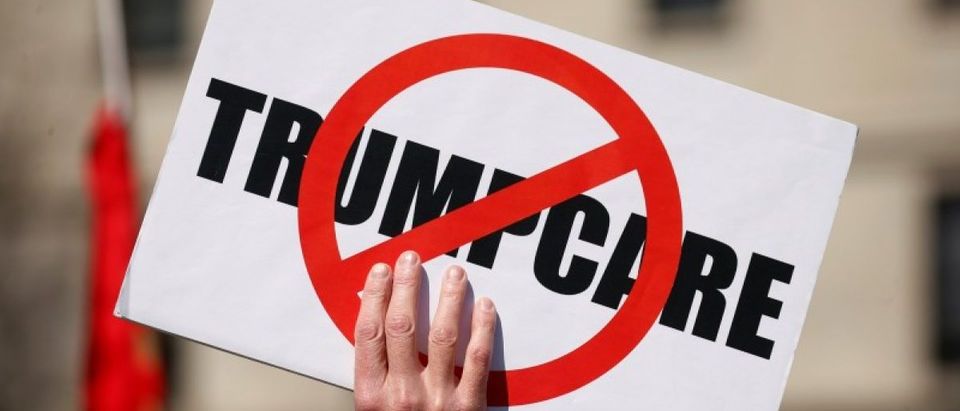States are toying with the idea of expanding Medicaid programs under Obamacare, after President Donald Trump and Republican leadership failed to pass health care reform last Friday.
Former President Barack Obama’s health care legislation was essentially a giant expansion of Medicaid — the federal-state health care program for poor and disabled Americans. Obamacare provided low-income families and individuals, who previously did not meet Medicaid standards, the means to obtain health insurance by altering qualifications and providing subsidies for individuals 400 percent below the poverty line.
The expansion program offered some tangible benefits to states that chose to participate. For states that choose to play ball, Washington provides a subsidy to help cover the cost of, in many cases, hundreds of thousands of people who get coverage once the program takes effect. The cost-sharing weighs heavily in the states’ benefits. The Congressional Budget Office estimates that the federal government will incur nearly 93 percent of the costs of Medicaid expansion over its first nine years.
Some 32 states have adopted Obamacare’s Medicaid expansion program since the landmark health care legislation took full effect in 2014. As lawmakers increasingly believe that Obamacare will continue to be the law of the land, states that previously eschewed Obamacare’s Medicaid expansion are now seeing it as a safety precaution if Republicans remain unable to push a viable repeal platform.
Kansas voted earlier in March to expand Medicaid, in the face of lamentations by the state’s Republican governor and congressmen. Additionally, states like Virginia and North Carolina are considering growing their Medicaid programs.
The move by states with Republican leadership is interesting, given that the Republican repeal legislation effectively overhauled the way the government currently funds Medicaid. Under the Republican platform, states that had opted out of the expansion program would have gotten substantially less Medicaid funding than states that had opted in previously. Therefore, the choice to now comply may be a politically savvy move, should Republicans choose to make similar cuts to Medicaid in future proposals.
Republican leadership is promising that health care reform will take a back seat to tax reform and Trump’s other pro-growth policies until lawmakers can see a clear path forward for repealing Obamacare, despite rumors Tuesday that Republican members were gearing up to push for repeal later in the week.
Speaker of the House Paul Ryan isn’t shooting down the possibility for health care reform in the near future, but has said he will not give a timeline because leadership wants “to get it right” the next time. House Majority Leader Kevin McCarthy gives a more optimistic, but just as nebulous, an explanation, providing no tangible time for the next repeal effort: “the fact that our conference is more resolved than ever to repeal this law is very encouraging and we’re not going to stop until we get it done.”
Secretary of Health and Human Services Tom Price is scheduled to appear before a House subcommittee, and lawmakers and states’ respective leadership will be listening for clarification on what the Trump administration’s plan is for next moves on health care reform.
Send tips to robert@dailycallernewsfoundation.org
All content created by the Daily Caller News Foundation, an independent and nonpartisan newswire service, is available without charge to any legitimate news publisher that can provide a large audience. All republished articles must include our logo, our reporter’s byline and their DCNF affiliation. For any questions about our guidelines or partnering with us, please contact licensing@dailycallernewsfoundation.org.


